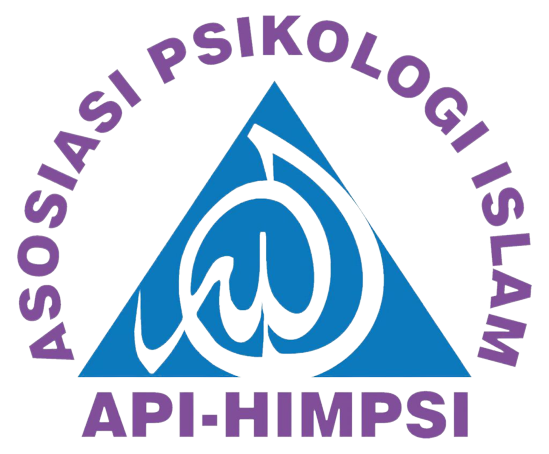Kualitas Tidur Mahasiswa Farmasi: Dampak Stres Akademik dan Efikasi Diri Saat Skripsi
DOI:
https://doi.org/10.36341/psi.v8i1.4843Keywords:
sleep quality, Academic Stress, Self Efficacy, Student College, Educational PsychologyAbstract
Pharmacy students who are working on their thesis experience impacts on physical and psychological health such as experiencing poor sleep quality. Poor sleep quality can trigger academic stress and is supported by low self-efficacy. Therefore, the lower the quality of sleep possessed by students, the higher the level of academic stress in completing the thesis and vice versa. The purpose of this study was to examine the effect of academic stress and self-efficacy on sleep quality in 2020 Faculty of Pharmacy students at Muhammadiyah Purwokerto University who are doing thesis. This study uses quantitative methods with multiple linear regression tests. Respondents in this study totalled 101 Faculty of Pharmacy students. The measuring instruments used were sleep quality scale, academic stress scale, and self-efficacy scale. The results showed that academic stress and self-efficacy can simultaneously contribute an influence of 31.5% on sleep quality. Efforts are needed to improve sleep quality in order to minimize academic stress, such as practicing self-control to boost confidence in completing their thesis.
Downloads
References
Ambarwati, P. D., Pinilih, S. S., & Astuti, R. T. (2017). Gambaran Tingkat Stres Mahasiswa. Jurnal Keperawatan Jiwa, 5(1), 40. https://doi.org/10.26714/jkj.5.1.2017.40-47
Arahnur, L. D., & Rinaldi. (2022). Hubungan Antara Adversity Quotient dengan Prokrastinasi Akademik pada Mahasiswa yang Mengerjakan Skripsi di Jurusan Psikologi UNP. Jurnal Pendidikan Tambusai, 6(1), 1060–1068.
Aulia, S., & Panjaitan, R. U. (2019). Psychological Well-Being and Level of Stress Among the Last Year College Students. Jurnal Keperawatan Jiwa, 7(2), 127–134. https://www.academia.edu/63216802/Kesejahteraan_psikologis_dan_tingkat_stres_pada_mahasiswa_tingkat_akhir
Aydin, F., & Aydin, A. (2024). Relationship among sleep quality, quality of life and academic self-efficacy of university students. Current Psychology, 43(24), 21110–21119. https://doi.org/10.1007/s12144-024-05929-2
Ayub, S., Zafer, M. S., Kiran, R., & Asif, A. (2022). Frustration Intolerance, Self-Efficacy and Sleep Quality in Medical Students During Pandemic of Covid-19. Journal Pakistan Psychiatri, 19(1). https://doi.org/10.53350/pjmhs2023171604
Bandura, A. (1997). Self-efficacy: the exercise of control (1st ed.).
Bedewy, D., & Gabriel, A. (2015). Examining perceptions of academic stress and its sources among university students: The Perception of Academic Stress Scale. Health Psychology Open, 2(2). https://doi.org/10.1177/2055102915596714
Cates, M. E., Clark, A., Woolley, T. W., & Saunders, A. (2015). Sleep quality among pharmacy students. American Journal of Pharmaceutical Education, 79(1), 1–6. https://doi.org/10.5688/ajpe79109
Delfmann, L. R., Verloigne, M., Deforche, B., Hunter, S. C., Cardon, G., de Boer, J., & Vandendriessche, A. (2023). Psychosocial Determinants of Sleep Behavior and Healthy Sleep Among Adolescents: A Two-Wave Panel Study. Journal of Youth and Adolescence. https://doi.org/10.1007/s10964-023-01866-8
Djoar, R. K., & Anggarani, A. P. M. (2024). Faktor - Faktor Yang Mempengaruhi Stress Akademik Mahasiswa Tingkat Akhir. Jambura Health and Sport Journal, 6(1), 52–59. https://doi.org/10.37311/jhsj.v6i1.24064
Indonesia Healthcare Resilience. (2021). Ketahui Bahaya Tidur Pagi Bagi Kesehatan. https://telemed.ihc.id/artikel-detail-276-Ketahui-Bahaya-Tidur-Pagi-Bagi-Kesehatan.html
Johnson, R., & Hlaing, E. E. (2020). Predictors of sleep quality: Depression, anxiety, and sleep self-efficacy. Modern Psychological Studies, 25(1). https://scholar.utc.edu/mps/vol25/iss1/4
Lisiswanti, R., Rodiani, Saputra, O., Sari, M., & Zafirah, N. (2019). Hubungan Antara Kualitas Tidur Terhadap Hasil Belajar Mahasiswa Program Studi Pendidikan Dokter Fakultas Kedokteran Universitas Lampung. J Agromedicine, 6(1), 68–71. https://juke.kedokteran.unila.ac.id/index.php/agro/article/view/2253
Maheshwari, G., & Shaukat, F. (2019). Impact of Poor Sleep Quality on the Academic Performance of Medical Students. Cureus, 11(4), 3–8. https://doi.org/10.7759/cureus.4357
Mohamad Hanapi, N. N., Ong, S. C., Ooi, G. S., & Daud, N. A. A. (2021). Sleep Quality and Quality of Life Among Malaysian Pharmacy Undergraduate Students. Malaysian Journal of Pharmaceutical Sciences, 19(1), 65–75. https://doi.org/10.21315/mjps2021.19.1.5
Nashori, F., Indonesia, U. I., & Wulandari, E. D. (2021). Psikologi tidur. March 2017.
National Sleep Foundation. (2023). Sleep Foundation. https://www.sleepfoundation.org/sleep-habits
Noveni, N. A., Afifah Primala Wijaya, D., Putri, M., & Rahmawati, P. (2022). Nia Anggri Noveni-Seberapa Besar Peran Kualitas Tidur terhadap Stress Akademik? Jurnal Psikologi, 6(1), 56–62.
Putri, A. T. H., & Ambarwati, K. D. (2023). Hubungan Stres Akademik Dengan Kualitas Tidur Pada Mahasiswa Yang Sedang Menyusun Skripsi Di Universitas Kristen Satya Wacana. Jurnal Of Social Science Research, 3. https://doi.org/10.51544/keperawatan.v6i1.3629
Putriningtiyas, I. (2021). Hubungan Antara Efikasi Diri dengan Orientasi Masa Depan pada Mahasiswa Tingkat Akhir Fakultas Psikologi UIN Maulana Malik Ibrahim Malang. http://etheses.uin-malang.ac.id/33967/
Rahmadhani, N. K., Ibrahim, I., & Adhayanti, I. (2023). Hubungan Tingkat Stres dengan Kualitas Tidur pada Mahasiswa Prodi Sarjana Terapan Farmasi. Journal of Holistics and Health Science, 5(1), 8–15. https://doi.org/10.35473/jhhs.v5i1.158
Ramadita, A. M., Harsanti, I., & Harmoni, A. (2023). Pengaruh Stres Akademik Terhadap Kualitas Tidur Pada Mahasiswa Tingkat Akhir. Arjwa: Jurnal Psikologi, 2(4), 212–222. https://doi.org/10.35760/arjwa.2023.v2i4.9620
S.F Djamalilleil, Rosmaini, & N.P Dewi. (2021). Kualitas Tidur Terhadap Konsentrasi Belajar Mahasiswa Fakultas, Hubungan. Health & Medical Journal, 3, 43–50.
Wulandari, S., & Rachmawati, M. A. (2014). Efikasi Diri Dan Stres Akademik Pada Siswa Sekolah Menengah Atas Program Akselerasi. Psikologika, 146–155. https://journal.uii.ac.id/Psikologika/article/view/7697
Yi, H., Shin, K., & Shin, C. (2006). Development of the Sleep Quality Scale. Journal of Sleep Research, 15(3), 309–316. https://doi.org/10.1111/j.1365-2869.2006.00544.x
Downloads
Published
Issue
Section
License
1. Copyright of all journal manuscripts is held by the Psychopolytan : Jurnal Psikologi
2. Formal legal provisions to access digital articles of electronic journal are subject to the provision of the Creative Commons Attribution-ShareAlike license (CC BY-NC-SA), which means that Psychopolytan : Jurnal Psikologi is rightful to keep, transfer media/format, manage in the form of databases, maintain, and publish articles.
3. Published manuscripts both printed and electronic are open access for educational, research, and library purposes. Additionally, the editorial board is not responsible for any violations of copyright law.
licensed under a Creative Commons Attribution-ShareAlike 4.0 International License.








